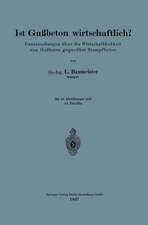Determinants of Construction Project Success in India: Topics in Safety, Risk, Reliability and Quality, cartea 23
Autor Kumar Neeraj Jhaen Limba Engleză Paperback – 19 mai 2015
Based on the critical success factors obtained from the study, a neural network model-based predictive model for project performance has been developed. The performance prediction models have been derived for all four project performance criteria. Further, a hypothesis that ‘project success’ is influenced by ‘success traits’ has also been formulated. The hypothesized positive inter-relationships between success traits and project success have been tested using the structural equation modelling technique.
Besides supporting the intuition of past researchers in recognizing ‘coordination’ as a key success factor, this study has revealed that coordination is not an isolated and independent activity, but is a typical management function with an inherent role in all major management activities. Key elements affecting coordination have also been identified and their influence on coordination effort has been studied. Furthermore, the present study has also identified three broad skill groups required of effective project coordinators.
The results are validated through case studies of live projects and structured interviews with experts in the field of construction management.
| Toate formatele și edițiile | Preț | Express |
|---|---|---|
| Paperback (1) | 942.01 lei 6-8 săpt. | |
| SPRINGER NETHERLANDS – 19 mai 2015 | 942.01 lei 6-8 săpt. | |
| Hardback (1) | 642.51 lei 6-8 săpt. | |
| SPRINGER NETHERLANDS – 28 mai 2013 | 642.51 lei 6-8 săpt. |
Din seria Topics in Safety, Risk, Reliability and Quality
- 15%
 Preț: 653.65 lei
Preț: 653.65 lei - 15%
 Preț: 658.70 lei
Preț: 658.70 lei - 15%
 Preț: 641.71 lei
Preț: 641.71 lei - 15%
 Preț: 645.79 lei
Preț: 645.79 lei - 15%
 Preț: 641.20 lei
Preț: 641.20 lei - 15%
 Preț: 650.69 lei
Preț: 650.69 lei - 15%
 Preț: 635.96 lei
Preț: 635.96 lei - 15%
 Preț: 635.47 lei
Preț: 635.47 lei - 18%
 Preț: 941.50 lei
Preț: 941.50 lei - 18%
 Preț: 947.85 lei
Preț: 947.85 lei - 19%
 Preț: 546.21 lei
Preț: 546.21 lei - 18%
 Preț: 959.98 lei
Preț: 959.98 lei - 18%
 Preț: 945.92 lei
Preț: 945.92 lei - 15%
 Preț: 639.41 lei
Preț: 639.41 lei - 15%
 Preț: 639.25 lei
Preț: 639.25 lei - 15%
 Preț: 642.51 lei
Preț: 642.51 lei - 15%
 Preț: 651.51 lei
Preț: 651.51 lei - 15%
 Preț: 647.40 lei
Preț: 647.40 lei - 19%
 Preț: 404.62 lei
Preț: 404.62 lei - 15%
 Preț: 644.95 lei
Preț: 644.95 lei - 18%
 Preț: 890.37 lei
Preț: 890.37 lei - 18%
 Preț: 956.99 lei
Preț: 956.99 lei - 15%
 Preț: 643.65 lei
Preț: 643.65 lei - 24%
 Preț: 961.67 lei
Preț: 961.67 lei - 19%
 Preț: 529.48 lei
Preț: 529.48 lei - 19%
 Preț: 558.71 lei
Preț: 558.71 lei -
 Preț: 451.96 lei
Preț: 451.96 lei
Preț: 942.01 lei
Preț vechi: 1148.78 lei
-18% Nou
Puncte Express: 1413
Preț estimativ în valută:
180.26€ • 192.75$ • 150.29£
180.26€ • 192.75$ • 150.29£
Carte tipărită la comandă
Livrare economică 18 aprilie-02 mai
Preluare comenzi: 021 569.72.76
Specificații
ISBN-13: 9789401781831
ISBN-10: 9401781834
Pagini: 244
Ilustrații: XIV, 227 p.
Dimensiuni: 155 x 235 x 13 mm
Greutate: 0.35 kg
Ediția:2013
Editura: SPRINGER NETHERLANDS
Colecția Springer
Seria Topics in Safety, Risk, Reliability and Quality
Locul publicării:Dordrecht, Netherlands
ISBN-10: 9401781834
Pagini: 244
Ilustrații: XIV, 227 p.
Dimensiuni: 155 x 235 x 13 mm
Greutate: 0.35 kg
Ediția:2013
Editura: SPRINGER NETHERLANDS
Colecția Springer
Seria Topics in Safety, Risk, Reliability and Quality
Locul publicării:Dordrecht, Netherlands
Cuprins
1 Introduction.- 2 Research Method.- 3 Major Attributes of Project Performance.- 4 Critical Success Factors For Projects.- 5 Project Performance Prediction.- 6 Success Traits For a Construction Project.- 7 Project Coordination For Success.- 8 Other Issues in Project Coordination and Traits of a Project Coordinator.- 9 Summary and Conclusions.- Index.
Textul de pe ultima copertă
This study presents exploratory work and seeks to identify and evaluate the success and failure factors that could form a guideline for further study and to some extent help professionals to understand some critical aspects that impact project performance concerning construction in India. A total of 55 attributes affecting the performance of construction projects are analysed in terms of their level of influence on four key performance criteria – schedule, cost, quality, and no disputes – using a two-stage questionnaire survey. These attributes are then further analysed, interpreted and evaluated.
Based on the critical success factors obtained from the study, a neural network model-based predictive model for project performance has been developed. The performance prediction models have been derived for all four project performance criteria. Further, a hypothesis that ‘project success’ is influenced by ‘success traits’ has also been formulated. The hypothesized positive inter-relationships between success traits and project success have been tested using the structural equation modelling technique.
Besides supporting the intuition of past researchers in recognizing ‘coordination’ as a key success factor, this study has revealed that coordination is not an isolated and independent activity, but is a typical management function with an inherent role in all major management activities. Key elements affecting coordination have also been identified and their influence on coordination effort has been studied. Furthermore, the present study has also identified three broad skill groups required of effective project coordinators.
The results are validated through case studies of live projects and structured interviews with experts in the field of construction management.
Based on the critical success factors obtained from the study, a neural network model-based predictive model for project performance has been developed. The performance prediction models have been derived for all four project performance criteria. Further, a hypothesis that ‘project success’ is influenced by ‘success traits’ has also been formulated. The hypothesized positive inter-relationships between success traits and project success have been tested using the structural equation modelling technique.
Besides supporting the intuition of past researchers in recognizing ‘coordination’ as a key success factor, this study has revealed that coordination is not an isolated and independent activity, but is a typical management function with an inherent role in all major management activities. Key elements affecting coordination have also been identified and their influence on coordination effort has been studied. Furthermore, the present study has also identified three broad skill groups required of effective project coordinators.
The results are validated through case studies of live projects and structured interviews with experts in the field of construction management.
Caracteristici
Takes Indian practice as starting point, however the topic is not country-specific Theory is evaluated by practical applications and re-evaluation Applicable world-wide as well as in industries concerned with optimizing excellence and efficiency















